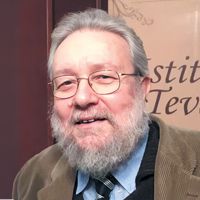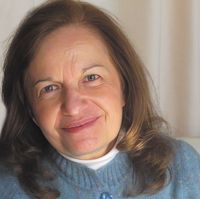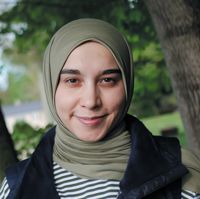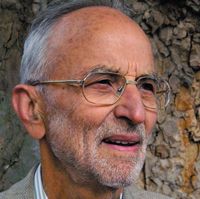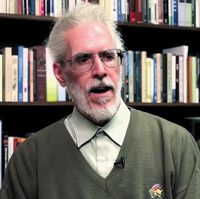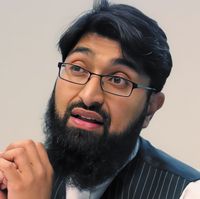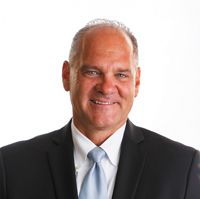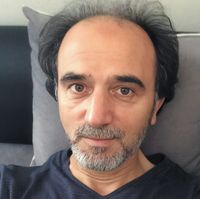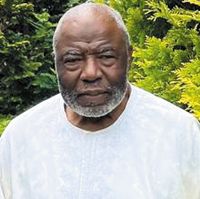
Fethullah Gülen: A Man, A Vision, A Movement
Fethullah Gülen: A Man, A Vision, A Movement
In This Article
-
Gülen foresaw a revitalized Islam, open to dialogue and capable of contributing meaningfully in a constantly evolving global world.
-
For Fethullah Gülen, it was essential that faith play a positive role in society, fostering a constructive synthesis between religion, modernity, patriotism, democracy, science, and the arts.
-
What characterizes this Movement is not its activities, nor a specific form of organization but the shared values and ideals rooted in the principles expressed in the thought and work of Fethullah Gülen.
Fethullah Gülen, a great thinker, mystic, and founder of a global movement that originated in Turkey, passed away on October 20th, 2024. For decades, he was largely overlooked by the general public and many scholars, despite his profound influence.
He was one of the many, though often ignored, Muslim thinkers who sought to rework the vision of classical Islam in a modern context, placing humanity at the center of its focus. Gülen called on Muslims and non-Muslims alike to embrace an ethical life that surpasses mere legalism, urging a deeper commitment to humanism and science. Consequently, he proposed an educational system in which science and religion should not conflict with each other but should support one other, envisioning a utopian harmony where thought and action are brought together.
Gülen foresaw a revitalized Islam, open to dialogue and capable of contributing meaningfully in a constantly evolving global world. His unwavering stance against the secularist fanaticism of the Kemalist era and his opposition to the authoritarian and fundamentalist drift of Erdoğan’s regime made him one of the strongest and bravest voices in the Islamic world. He identified the primary evils of our time as poverty, lack of solidarity, and ignorance, and he dedicated his life to combating them.
The Islam he proposed was one open to modernity and universal dialogue, firmly opposed to any form of radicalism that distorts the true essence of a religion that has significantly contributed to humanity’s cultural and social progress. In the face of such distorted interpretations, even among Muslims, Gülen was unafraid to speak clearly and decisively. He once stated: “Terror can never be used in the name of Islam or for the sake of any Islamic ends. A terrorist cannot be a Muslim, and a Muslim cannot be a terrorist. A Muslim can only be the representative and symbol of peace, welfare, and prosperity.”
His life, works, and the movement he inspired were deeply rooted in the religious and political context of his time. From his youth through his mature years, he navigated the challenges of the Kemalist regime, where Islam was tightly controlled and administered by a secular state. Despite this, the local Turkish population generally remained tolerant and connected to the spirituality of the Sufi brotherhoods in their daily lives.
While often referring in his writings to the tradition of classical Sufism and its most prominent figures—drawing extensively from the lives and works of great Sufi saints—he never identified himself as a Sufi or as a member of any of the Sufi fraternities in Turkey. Instead, he offered a personalized and individual interpretation of Sufism. From the Sufi tradition, he drew values that he embodied in his own life—through his personal asceticism, lack of interest in worldly wealth, and meek character, which harmoniously blended with his strong leadership qualities.
Fethullah Gülen was a man of the people, thanks to his modest origins and the difficulties and sufferings he faced throughout his life, from which he drew the ability to deeply understand the needs of ordinary people, with a profound sense of empathy and altruism.
This quality of being a “man of the people,” however, did not prevent him from possessing a rich culture, which he acquired through hard efforts and daily commitment to studying and reading the classic texts of Islam, as well as numerous works by Western authors, ranging from literature to science, poetry to philosophy.
In his life, he devoted himself primarily to preaching and communicating the fundamental values of his religious beliefs. At the same time, he remained open to modernity and science and was a passionate advocate for dialogue with people of other faiths, with whom he sought to build a better world grounded in high moral values. This attitude led him to focus particularly on fundamental human values, which, when lived by each individual, form the foundation of an authentic reform of social life. In this context, Fethullah Gülen emphasizes the need for self-reform, urging believers to become better practitioners of their faith.
In Gülen’s view, contrary to what one might assume, such an approach does not restrict the interests of individual Muslims or their communities. Instead, it broadens their horizons to include civil society and the entire world, which, from his perspective, is in search of a new humanism—one in which religion can and must play a vital role. He was particularly invested in young people, encouraging them to become active members of society without neglecting their responsibilities. He believed they should be present in every institution—schools, the judiciary, bureaucracy, the military, media, arts, literature, and even business and finance—to contribute to the welfare of both society as a whole and individual citizens.
For Fethullah Gülen, it was essential that faith play a positive role in society, fostering a constructive synthesis between religion, modernity, patriotism, democracy, science, and the arts. He envisioned a form of positive secularism where religion and modernity could coexist harmoniously. He opposed all forms of pietism and religious intolerance, consistently striving to build bridges of communication—whether between faith and science or among different cultures and worlds.
Referring to the traditional Turkish understanding of Islam, which has often been characterized by exclusion and isolation, he advocated for inclusion and integration. He viewed intercultural and interreligious dialogue as a powerful tool for fostering peace and fraternity among peoples.
Gülen’s view of Islam is based on a solid faith in the tradition and its fundamental texts, while remaining open to the advancements of philosophy and science, as well as the critical thinking of individuals. This faith centers on the profound relationship between God and the universe, embodied in the Islamic concept of the unity of God (tawhîd). In Gülen’s view, tawhîd encompasses both God’s transcendence and His immanence, which is expressed through the emanation of His “Beautiful Names.” These Names manifest throughout the cosmos, leading to the knowledge of God and allowing humanity to explore the mysteries of the universe.
However, it is humanity—its nature, characteristics, and potential—that lies at the heart of Gülen’s thought. He sees humanity as the most important being and the essence of creation itself, as each person carries within them the mystery of the universe. This enables every individual, regardless of religion, race, wealth, or social status, to manifest the Divine, particularly love, which is the fulcrum of the Divine Essence. For Gülen, love is the foundation of true humanism, as exemplified by the lives and teachings of prophets and sages across all religions. These figures have strived for a just, compassionate, and peaceful world, rooted in the mercy of the “Most Merciful” and His universal plan.
However, the world around us is not always a reflection of the divine: wars, massacres, conflict, and suffering often seem to overshadow a humanism rooted in understanding, tolerance, and love. Thus, Gülen tries to uncover the roots of these evils and identifies the lack of knowledge as the primary source of humanity’s afflictions. Consequently, he places significant emphasis on the educational process, viewing it as essential for raising new generations who can integrate secular education with a deep, personal religiosity, fostering the authentic formation of character and personality.
Offering guidance to teachers, Gülen views their role as that of a “pedagogue” who imposes nothing but assists and supports the development of the student’s personality. Their aim is to help students forge their character and cultivate the qualities of self-discipline and self-control necessary to face life with courage and dedication. It is, therefore, an educational process grounded in persuasion and dialogue, designed to provide a comprehensive education for tomorrow’s professionals—equipping students not only with knowledge and skills but also with moral integrity and universal ethical values.
His enduring dream is to nurture a young generation—"a golden generation”—where enlightened intellectualism, deep and sincere spirituality, wisdom, and continuous activism coexist. He particularly sees in Prophet Muhammad, whom he calls “the pride of humanity,” the model for this new generation. In him, they will find the example of a compassionate father, a great spiritual leader, a wise statesman, a courageous commander, and a loving husband—in short, an absolutely trustworthy and upright person. For Gülen, Prophet Muhammad is both the “ideal man” and the “ideal of every man,” embodying in his life and teachings the ethical pinnacle of humanity.
Gülen was deeply committed to shaping new generations, dedicating himself to supporting poor students in various schools across cities and villages in Turkey. The movement inspired by his teachings and personality, often referred to by Western scholars as the “Gülen Movement,” is known by its members as “Hizmet” (voluntary service). It lacks formal hierarchical structures or networks of connections and is instead composed of men and women of “good will” who share Gülen’s passion for humanity.
This movement has given life to numerous educational, cultural and social service institutions not only in Turkey but also in many other parts of the world (from Central Asia to the Balkans, Mongolia and Bangladesh, from North Africa to sub-Saharan Africa, as well as in many European countries and North and South America.) These institutions operate without discrimination based on religion, gender, or ethnic and cultural background.
What characterizes this Movement is not its activities, nor a specific form of organization but the shared values and ideals rooted in the principles expressed in the thought and work of Fethullah Gülen. And it is precisely for this reason that, educational institutions hold a central place among the Movement’s activities, fostering a new way of interaction among teachers, parents, and entrepreneurs who support various educational projects.
The main goal of this approach is to foster a direct and continuous relationship between teachers, students, and families, ensuring that the educational process becomes a synthesis of heart and mind, tradition and modernity, spirituality and rationality. Financial sponsors are also encouraged to engage in a spirit of altruistic service by interacting with students, families, and teachers, visiting institutions, and building a familial connection with everyone involved.
During my various visits to schools of the Movement, from Albania to Senegal, I have witnessed this climate of mutual understanding and collaboration between students, families and teachers. There is a shared pursuit of an education that provides models of behavior and moral conduct for all students, regardless of their creed, political views, or cultural background. In fact, although most of the teachers are Muslim, I have not seen a great concern to propagate Islam. The deepest desire of those teachers seems to be that of living and communicating those values which, according to Fethullah Gülen, are inherent in Islam but are ultimately the shared heritage of all humanity.
It is a movement in which women are very active, not only as teachers in various educational institutions but also as promoters of ideas and new initiatives at various international conferences organized by the Movement.
The financial aspect is approached with a deep sense of solidarity and a strong commitment to preserving the independence and voluntary nature of the Movement's projects, avoiding reliance on government aid or financial contributions from foreign foundations. As a result, funds are collected voluntarily in an atmosphere of fellowship and mutual support, strengthened by frequent interpersonal connections.
It is almost impossible to provide a complete picture of the countless institutions inspired by Gülen and carried out by the Movement. However, it is important to note that the service (Hizmet) is not limited to the field of education but extends to many other areas of social life worldwide, including aid for the needy and the promotion of interreligious and intercultural dialogue, as well as world peace.
It is thanks to these flourishing initiatives that the spirit and thought of Fethullah Gülen have spread globally, offering a vision of society and civil coexistence rooted in responsibility and the pursuit of a more equitable and just world. This vision is realized through the efforts of people of good will, who provide a model of life and community that stands as an alternative to the selfishness and injustice prevalent in today’s society.
